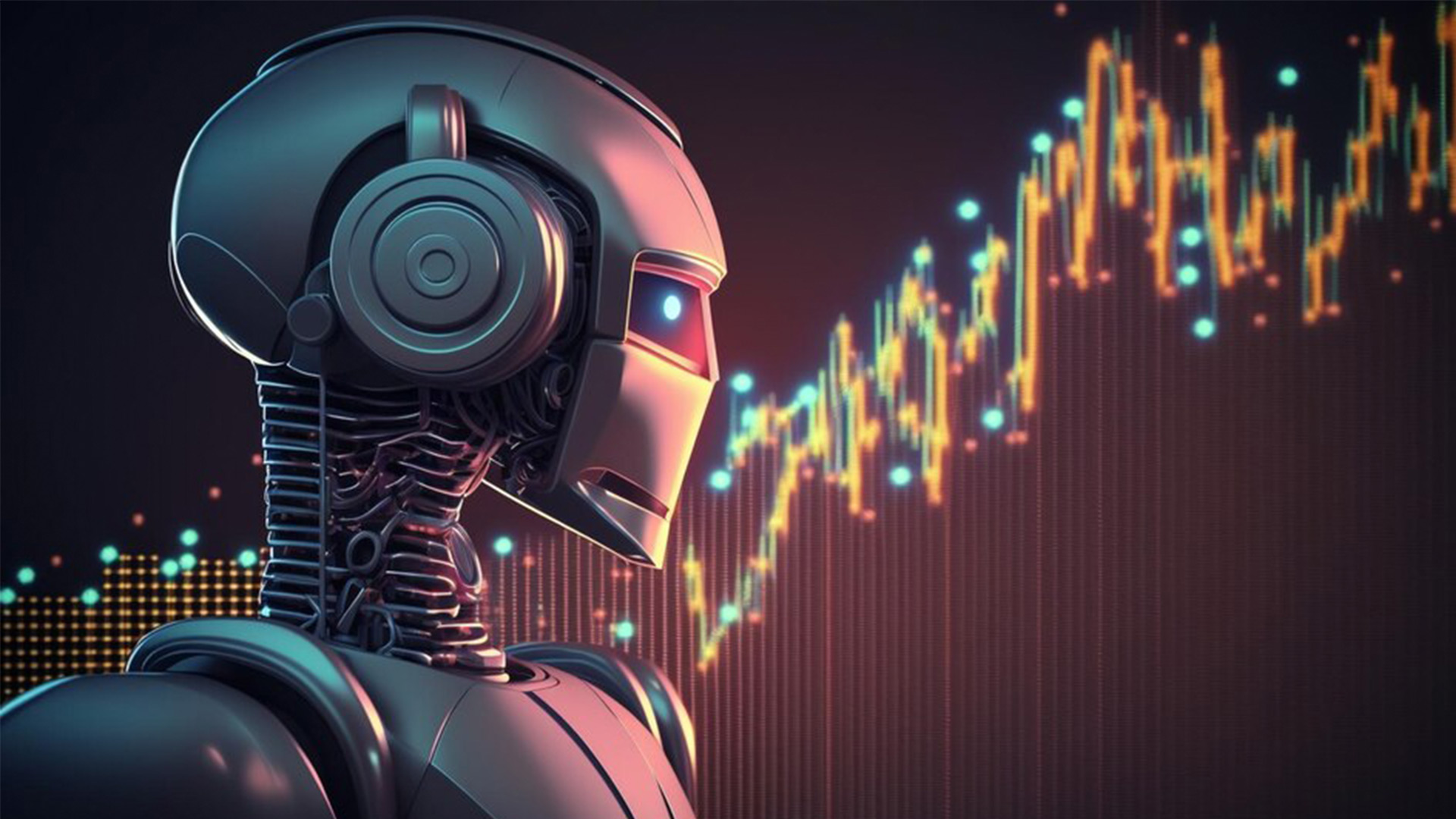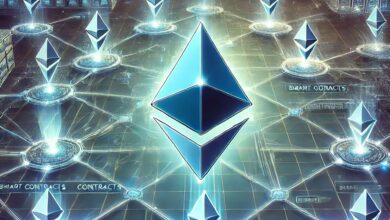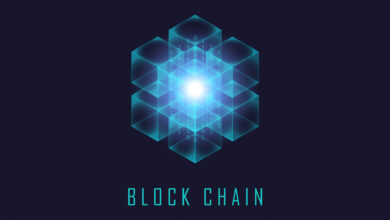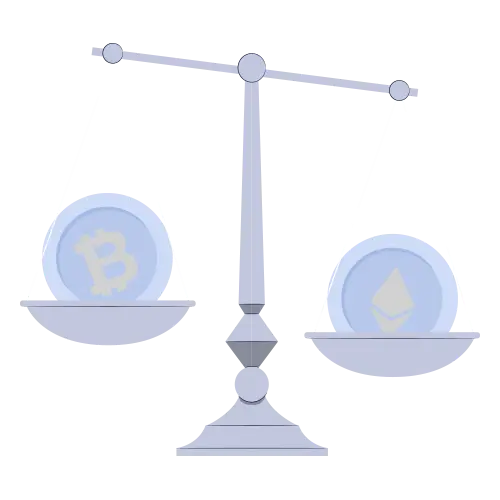Blockchain Vs Artificial Intelligence

- Understanding Blockchain Technology
- Exploring Artificial Intelligence
- Blockchain and Artificial Intelligence: A Comparison
- Use Cases of Blockchain Technology
- Use Cases of Artificial Intelligence
- Synergies Between Blockchain and Artificial Intelligence
- Challenges and Limitations of Blockchain and Artificial Intelligence
- The Future of Blockchain and Artificial Intelligence
- Conclusion
Blockchain and Artificial Intelligence (AI) are two transformative technologies that have gained significant attention in recent years. While they are distinct in nature, a comparison between blockchain and AI can shed light on their unique characteristics and potential applications. In this article from Forvest, you will learn about the comparison of blockchain and artificial intelligence, Stay with us.
Understanding Blockchain Technology
Blockchain technology is a revolutionary concept that has gained significant attention in recent years. It is a decentralized and distributed ledger system that enables secure and transparent transactions without the need for intermediaries. At its core, blockchain is a chain of blocks, where each block contains a set of transactions or data, and these blocks are linked together using cryptographic techniques.
One of the key characteristics of blockchain technology is its decentralized nature. Unlike traditional centralized systems where a central authority controls the transactions and data, blockchain operates on a peer-to-peer network where all participants have access to the same information. This decentralized structure ensures transparency, immutability, and security of the data stored on the blockchain.
Another important aspect of blockchain technology is the use of cryptographic algorithms. These algorithms ensure that the data stored on the blockchain cannot be tampered with or altered. Each block contains a unique identifier called a hash, which is generated based on the data in the block. Any changes to the data will result in a different hash, making it nearly impossible to manipulate the information stored on the blockchain.
Blockchain technology has various applications beyond cryptocurrencies like Bitcoin. It can be utilized in supply chain management, healthcare, finance, voting systems, and many other industries. Its ability to provide a transparent and tamper-proof record of transactions and data makes it an attractive solution for improving efficiency, reducing fraud, and enhancing trust in various processes.
Exploring Artificial Intelligence
Artificial Intelligence (AI) is a field of computer science that focuses on the development of intelligent machines capable of performing tasks that typically require human intelligence. It involves the creation of algorithms and systems that can learn, reason, and make decisions based on data.
AI encompasses various subfields, including machine learning, natural language processing, computer vision, and robotics. Machine learning, in particular, is a key component of AI that enables systems to learn from data without explicit programming. Through the analysis of large datasets, machine learning algorithms can identify patterns, make predictions, and continuously improve their performance.
Natural language processing (NLP) allows machines to understand and process human language. This enables AI systems to interact with users through voice commands, chatbots, and virtual assistants, making communication more intuitive and efficient.
Computer vision focuses on giving machines the ability to understand and interpret visual information, such as images and videos. This enables AI systems to analyze and recognize objects, faces, and gestures, opening up possibilities in areas like autonomous vehicles, surveillance, and healthcare.
AI-powered robotics combines the principles of AI and robotics to develop intelligent machines that can perform physical tasks in various industries, from manufacturing and healthcare to exploration and entertainment.
The potential applications of AI are vast and diverse. Industries like healthcare, finance, transportation, and retail are already leveraging AI technologies to enhance efficiency, improve decision-making, and automate processes. AI has the potential to transform industries, create new business models, and drive innovation in unprecedented ways.
However, it is important to consider the ethical implications and challenges associated with AI, such as data privacy, bias, and job displacement. As AI continues to evolve, it is crucial to ensure that it is developed and deployed responsibly, with a focus on transparency, fairness, and accountability.
Blockchain and Artificial Intelligence: A Comparison
Blockchain and Artificial Intelligence (AI) are two transformative technologies that have gained significant attention in recent years. While they are distinct in nature, a comparison between blockchain and AI can shed light on their unique characteristics and potential applications.
Blockchain, at its core, is a decentralized and transparent ledger that records transactions across multiple computers or nodes. It enables secure and immutable record-keeping, making it highly suitable for applications such as blockchain in cryptocurrency transactions, supply chain management, and decentralized finance. Blockchain’s key features include decentralization, transparency, immutability, and cryptographic security. It has the potential to revolutionize industries by providing trust, traceability, and efficiency in various processes.
On the other hand, AI focuses on the development of intelligent systems that can perform tasks that typically require human intelligence. AI systems learn from data, recognize patterns, and make decisions or predictions. AI encompasses subfields such as machine learning, natural language processing, and computer vision. Machine learning, in particular, enables systems to learn from data without explicit programming, while natural language processing enables machines to understand and interpret human language.
While blockchain and AI serve different purposes, there are areas where they intersect. For example, blockchain can enhance AI systems by providing secure and decentralized storage of large datasets, enabling data sharing while maintaining privacy. Additionally, AI algorithms can be employed to analyze blockchain data, extract meaningful insights, and make predictions.
However, there are also challenges when integrating blockchain and AI. Scalability and performance issues may arise when processing large datasets on blockchain networks, while ensuring data privacy and security remains a concern in AI applications.
In conclusion, while blockchain and AI are distinct technologies, their combination holds immense potential for innovation and transformation across industries. By leveraging the decentralized and transparent nature of blockchain and the learning capabilities of AI, new possibilities emerge for secure, intelligent, and data-driven applications. As both technologies continue to advance, exploring their synergies and addressing their challenges will shape the future of technological advancements.
Use Cases of Blockchain Technology
Blockchain technology has proven to be versatile and has found applications in various industries. Its inherent features of transparency, security, and decentralization make it suitable for a wide range of use cases. Here are some notable examples of how blockchain technology is being utilized:
- Cryptocurrencies: The most well-known application of blockchain is the creation and use of cryptocurrencies like Bitcoin and Ethereum. Blockchain ensures secure and transparent transactions, eliminates the need for intermediaries, and enables individuals to have full control over their digital assets.
- Supply Chain Management: Blockchain is revolutionizing supply chain management by providing end-to-end visibility and traceability. It enables tracking and verification of goods at every stage, ensuring authenticity, preventing counterfeiting, and enhancing trust among participants.
- Healthcare: Blockchain is being explored to improve healthcare systems by securely storing and sharing medical records, ensuring privacy, and facilitating interoperability among different healthcare providers. It can also streamline clinical trials, pharmaceutical supply chains, and insurance claim processes.
- Voting Systems: Blockchain technology can enhance the security and transparency of voting systems. By recording votes on an immutable ledger, it reduces the risk of fraud and tampering, ensuring the integrity of elections and promoting trust in the democratic process.
- Intellectual Property Protection: Blockchain can be used to establish proof of ownership and protect intellectual property rights. It provides a decentralized and timestamped record of creations, making it easier to verify and enforce ownership claims.
- Decentralized Finance (DeFi): Blockchain has given rise to decentralized finance platforms that enable peer-to-peer lending, borrowing, and trading without intermediaries. DeFi applications leverage smart contracts to automate transactions and ensure transparency and security.
These are just a few examples of the wide-ranging applications of blockchain technology. As the technology continues to evolve, new use cases will emerge, paving the way for innovative solutions across industries.
Use Cases of Artificial Intelligence
Artificial Intelligence (AI) has emerged as a transformative technology with numerous practical applications across various sectors. Its ability to mimic human intelligence and automate complex tasks has led to the development of innovative solutions. Here are some prominent use cases of AI:
- Natural Language Processing (NLP): AI-powered NLP enables machines to understand and interpret human language. It finds applications in chatbots, virtual assistants, and language translation services, improving communication and customer service experiences.
- Image and Video Analysis: AI algorithms can analyze and interpret visual data, allowing for advanced image recognition, object detection, and video analytics. This technology is used in facial recognition systems, autonomous vehicles, and content moderation platforms.
- Healthcare Diagnosis and Treatment: AI assists in medical diagnosis by analyzing patient data, identifying patterns, and providing accurate assessments. It aids in early disease detection, personalized treatment plans, and drug discovery, leading to improved healthcare outcomes.
- Financial Services: AI is transforming the financial industry through applications like fraud detection, risk assessment, and algorithmic trading. It enables automated data analysis, real-time market monitoring, and personalized financial advice.
- Autonomous Systems: AI is fundamental to the development of autonomous systems such as self-driving cars, drones, and robots. These systems leverage AI algorithms to perceive and navigate the environment, making them capable of performing tasks independently.
- Personalized Recommendations: AI algorithms are used to analyze user behavior and preferences to deliver personalized recommendations in areas like e-commerce, content streaming platforms, and digital marketing. This enhances user experiences and increases customer engagement.
- Cybersecurity: AI plays a crucial role in enhancing cybersecurity by detecting and mitigating threats in real-time. It helps in identifying patterns of malicious activities, securing networks, and protecting sensitive data.

These use cases represent only a fraction of the potential applications of AI. As the technology continues to advance, it holds the promise of revolutionizing numerous industries, improving efficiency, and driving innovation.
Synergies Between Blockchain and Artificial Intelligence
The convergence of blockchain and artificial intelligence (AI) technologies holds significant potential for creating synergies and driving innovation across various domains. Here are some key areas where blockchain and AI can complement each other:
- Data Integrity and Security: Blockchain’s decentralized and immutable nature ensures the integrity and security of data. By combining AI’s data analysis capabilities with blockchain’s tamper-resistant properties, organizations can have greater confidence in the accuracy and trustworthiness of their data. This is particularly valuable in sectors such as healthcare, supply chain, and financial services, where data integrity is critical.
- Enhanced Data Sharing and Privacy: Blockchain can provide a secure and transparent framework for sharing data among multiple parties while maintaining privacy. AI algorithms can leverage this shared data to gain deeper insights and train more accurate models. This collaborative approach can lead to improved AI solutions without compromising data privacy.
- Tokenization and Incentives: Blockchain enables the tokenization of assets, allowing for the creation of digital tokens that represent real-world or digital assets. AI algorithms can leverage these tokens to access and analyze diverse datasets, incentivizing data contributors and fostering a collaborative ecosystem. This can unlock new opportunities for AI research and development.
- Smart Contracts and Automation: Blockchain-based smart contracts enable self-executing agreements with predefined conditions. AI algorithms can utilize these smart contracts to automate processes and streamline transactions. For example, AI-powered chatbots can interact with smart contracts to automate customer support and dispute resolution.
- Decentralized AI Models: Blockchain networks can support decentralized AI models where computations are distributed across multiple nodes. This approach can enhance privacy, reduce reliance on centralized infrastructure, and promote collaboration in AI research and training.
- Auditability and Transparency: Blockchain’s transparent and auditable nature can enhance the accountability and transparency of AI systems. It allows for tracking and verifying the sources of data, the training process, and the decision-making criteria employed by AI algorithms. This can help address concerns around bias, fairness, and ethical considerations in AI.
The convergence of blockchain and AI technologies presents exciting opportunities to address existing challenges and revolutionize industries. As these technologies continue to evolve, their combined potential is likely to drive transformative solutions with enhanced trust, security, and efficiency.
Challenges and Limitations of Blockchain and Artificial Intelligence
While blockchain and artificial intelligence (AI) offer immense potential, there are also challenges and limitations that need to be considered. Here are some key challenges associated with both technologies:
Scalability: Blockchain faces scalability issues due to the consensus mechanisms and the need for all participants to validate and store every transaction. As the volume of transactions and data increases, it can strain the network’s performance. Similarly, AI algorithms require substantial computational resources, and training complex models can be time-consuming and resource-intensive.
Energy Consumption: Blockchain networks, especially those that rely on proof-of-work consensus algorithms, consume significant amounts of energy. This energy consumption has raised concerns regarding the environmental impact of blockchain technology. AI algorithms, particularly deep learning models, also require substantial computing power, which contributes to energy consumption.
Data Privacy and Security: While blockchain offers enhanced security through encryption and decentralization, the immutability of data can pose challenges in terms of data privacy regulations, especially in sensitive industries like healthcare. AI algorithms also require access to vast amounts of data, raising concerns about privacy and potential misuse of personal information.
Lack of Interoperability: The lack of standardization and interoperability between different blockchain platforms and AI systems can hinder their widespread adoption. Integration and communication between different networks and technologies need to be addressed to fully leverage their potential.
Bias and Ethical Concerns: AI algorithms can be biased if trained on biased or incomplete datasets, leading to unfair outcomes and perpetuating existing social biases. Ensuring fairness, transparency, and ethical use of AI remains a significant challenge. Similarly, blockchain applications must grapple with ethical considerations, such as the immutability of illegal or unethical transactions stored on the blockchain.
Regulatory and Legal Frameworks: The rapid development of blockchain and AI technologies has outpaced regulatory frameworks, leading to uncertainties and legal challenges. Governments and regulatory bodies are still grappling with how to address issues related to data privacy, security, intellectual property rights, and liability in the context of these technologies.
While recognizing these challenges, it is crucial to address them through ongoing research, collaboration, and the development of robust frameworks. Overcoming these limitations will pave the way for the widespread adoption and responsible implementation of blockchain and AI in various industries, unlocking their full potential for positive societal impact.
The Future of Blockchain and Artificial Intelligence
The future of blockchain and artificial intelligence (AI) holds great promise as these technologies continue to evolve and mature. Here are some key aspects that highlight their potential:
Enhanced Efficiency and Automation: Blockchain and AI have the potential to revolutionize industries by streamlining processes and automating tasks. Blockchain’s decentralized and immutable nature can enhance transparency, trust, and security in various domains, such as supply chain management, financial services, and healthcare. AI, with its advanced algorithms and machine learning capabilities, can optimize decision-making, automate repetitive tasks, and enable personalized experiences.
Smart Contracts and Decentralized Applications: Blockchain technology enables the creation of smart contracts, which are self-executing agreements with predefined rules. These contracts can automate processes, eliminate intermediaries, and enhance efficiency. Additionally, blockchain platforms facilitate the development of decentralized applications (DApps) that leverage smart contracts and provide new functionalities and business models.
Data Collaboration and Security: The combination of blockchain and AI can enable secure data sharing and collaboration. Blockchain’s distributed ledger ensures data integrity, while AI algorithms can analyze and derive insights from large datasets. This opens up possibilities for industries to leverage collective intelligence while ensuring data privacy and security.
Personalized Experiences and Recommendation Systems: AI-powered recommendation systems can leverage blockchain’s transparent and auditable data to provide personalized experiences to users. By analyzing user preferences, behavior, and historical data stored on the blockchain, AI algorithms can deliver tailored recommendations, enhancing customer satisfaction and engagement.
Ethical and Responsible AI: As AI becomes more pervasive, ensuring ethical and responsible AI development and deployment is crucial. Blockchain’s transparency and auditability can provide a framework for verifying the fairness, accountability, and transparency of AI systems. By leveraging blockchain, organizations can address concerns related to bias, data privacy, and algorithmic accountability.
Integration with Internet of Things (IoT): Blockchain and AI can intersect with the Internet of Things, enabling secure and autonomous interactions between connected devices. Blockchain’s tamper-resistant nature and AI’s ability to analyze IoT-generated data can enhance the efficiency, security, and intelligence of IoT ecosystems.
It is important to note that the future of blockchain and AI also brings challenges, such as regulatory considerations, data governance, and the need for interdisciplinary collaboration. However, with continued advancements, research, and responsible implementation, blockchain and AI hold tremendous potential to transform industries, drive innovation, and shape the future of technology.

Conclusion
In conclusion, the synergies between blockchain and artificial intelligence (AI) present a remarkable opportunity to revolutionize various industries and drive innovation. The combination of blockchain’s decentralized, transparent, and secure nature with AI’s advanced analytics, automation, and decision-making capabilities has the potential to transform the way we operate and interact.
As these technologies continue to evolve, it is crucial to stay informed about their developments and potential applications. Forvest, a leading provider in the field of blockchain and AI, is committed to providing valuable insights and resources to help individuals and businesses navigate this dynamic landscape. Forvest’s Blog serves as a trusted source of information, offering in-depth analysis, case studies, and expert perspectives on the intersection of blockchain and AI.
By harnessing the power of blockchain and AI, businesses can streamline processes, improve efficiency, enhance security, and unlock new opportunities for growth. Industries such as finance, supply chain management, healthcare, and energy can benefit from the integration of these technologies, leading to increased transparency, reduced costs, and improved customer experiences.
However, it is important to address the challenges and limitations associated with blockchain and AI, including regulatory considerations, data privacy, and ethical concerns. Forvest’s Blog provides valuable insights into these topics, helping readers understand the implications and best practices for responsible adoption.
As we look to the future, the continued development and integration of blockchain and AI hold immense potential. By leveraging the expertise and resources available through Forvest’s Blog, individuals and businesses can stay at the forefront of these transformative technologies, making informed decisions and unlocking new possibilities in their respective fields.
Harness the power of blockchain and AI with Forvest’s expertise, and join the journey towards a more efficient, secure, and innovative future.
Rating of this post
Rate
If you enjoyed this article, please rate it.







